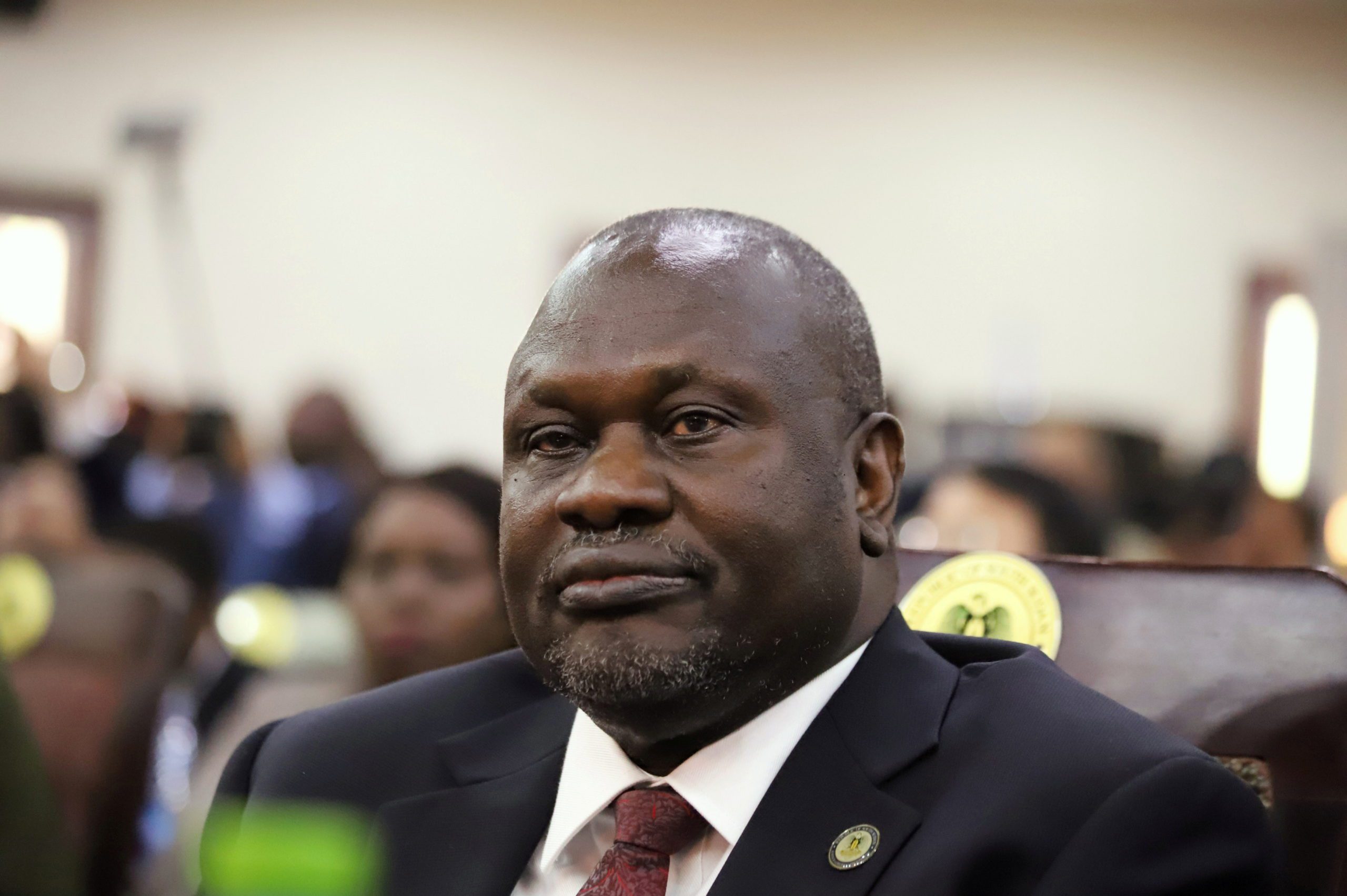
South Sudan’s Machar deposed as head of party; South Africa’s Zuma hospitalized
On Wednesday, the military wing of South Sudanese Vice President Riek Machar’s political party (the Sudan People’s Liberation Movement-in-Opposition) announced that it had deposed him as party head after a three-day meeting of senior officials. The military wing indicated that Machar had “completely failed” to strengthen the party’s position since forming a coalition government with the Sudan People’s Liberation Movement, the party of current President Salva Kiir. In Machar’s place, the military wing named its chief of staff, First Lieutenant General Simon Gatwech Dual, the interim leader of the opposition party. The political reshuffling comes at a time when the world’s youngest country faces its worst hunger crisis since independence.
Elsewhere on the continent, former South African President Jacob Zuma was scheduled to appear in court on August 10 to resume his suspended corruption case, but his appearance is now uncertain after his hospitalization—the cause of which was not disclosed—on Friday following a routine medical appointment. Zuma, currently in jail serving a 15-month unrelated sentence, had been given permission to attend the hearing in person after his lawyers complained that a video-call trial was unconstitutional. Sixteen charges of fraud, graft, and racketeering still face Zuma, whose court appearances have, according to al-Jazeera, incited violence in South Africa that has seen the deaths of at least 337 people.
Ethiopia suspends two aid groups in Tigray region; conflicts continue in Niger, CAR, and Nigeria
On July 30, the Ethiopian government suspended part or all operations of two international aid groups, Doctors Without Borders and the Norwegian Refugee Council, further injuring the hundreds of thousands of civilians facing famine-like conditions in the Tigray region. The Ethiopian government claims that these aid groups were spreading misinformation, did not have appropriate work permits, and were using satellite radio equipment not authorized by the government. United Nations Under-Secretary-General for Humanitarian Affairs and Emergency Relief Coordinator Martin Griffiths rejected the claims, stating that blanket accusations, “need to be backed up by evidence if there is any and, frankly, it’s dangerous.”
Meanwhile, conflict continues in Ethiopia as forces in the Tigray region expand into neighboring regions of Amhara and Afar, forcing around 250,000 people to flee the region. On Thursday, Tigrayan forces took control of a town called Lalibela, located in northern Ethiopia, although with no reported fighting. The town contains 11 monolithic churches constructed out of rock over 900 years ago and a historical holy site for Ethiopian Orthodox Christians as well as a major tourist destination.
Other African nations continue to face internal conflict as well. In southwestern Niger, jihadist rebels attacked a military supply mission on Saturday, killing at least 15 soldiers. In the Central African Republic, rebels from the Funali ethnic group killed six civilians and wounded several others in the village of Mann last Saturday. Russia has sent at least 500 instructors to assist the Central African Republic’s army, but their deployment has been controversial as the U.N. claims that the instructors participate in “indiscriminate killings and lootings”.
Nigeria, too, faces internal conflicts with the separatists of the Indigenous People of Biafra (IPOB). Violence within the southeast region has escalated this year, resulting in at least 127 civilians, gunmen, and security forces dead. Amnesty International blames the government forces, namely the Eastern Security Network, for escalating the violence with arbitrary arrests, ill treatment, and torture of civilians.
Illegal animal and plant trade rising in Nigeria and South Africa
On Wednesday, Nigerian officials seized a substantial amount of pangolin scales, claws, and elephant tusks worth 22 billion naira ($54 million) in a recent attempt to combat the illegal trading of these items. Notably, pangolin has become one of the most trafficked mammals on earth due to the demand of its scales for traditional Chinese medicine. In 2019, according to Reuters, Nigeria became Africa’s staging ground for the illegal trade, with two-thirds of major seizures of the animals coming from the country in 2018, doubling the 2016 number.
In South Africa, rhino poaching has increased as lockdown restrictions have eased. According to South Africa’s Minister of Environment Barbara Creecy, in the first half of 2021 alone, 249 rhinos have been poached in South Africa, leading to a total of 125 arrests. In addition to protecting South Africa’s threatened southern white rhino and endangered black rhino populations, scientists are also trying to save the northern white rhinos from complete extinction. There are only two known living northern white rhinos in the world, both of which are female and living in Kenya.
Also in South Africa, officers from the Stock Theft and Endangered Species Unit arrested an individual smuggling boxes of Conophytums, succulents indigenous to the region, in the latest example of succulent poaching driven by demand particularly from collectors in Korea and China. Poaching has increased during the pandemic, as some plants can sell for thousands of dollars a piece. Poaching of this plant is most prolific in the Northern Cape and Western Cape provinces, which offer dry, arid climates in which succulents grow best. As officials crack down on poaching in these areas, botanists are struggling to deal with what to do with newly confiscated plants, with some facilities receiving about 2,500 plants per week.


